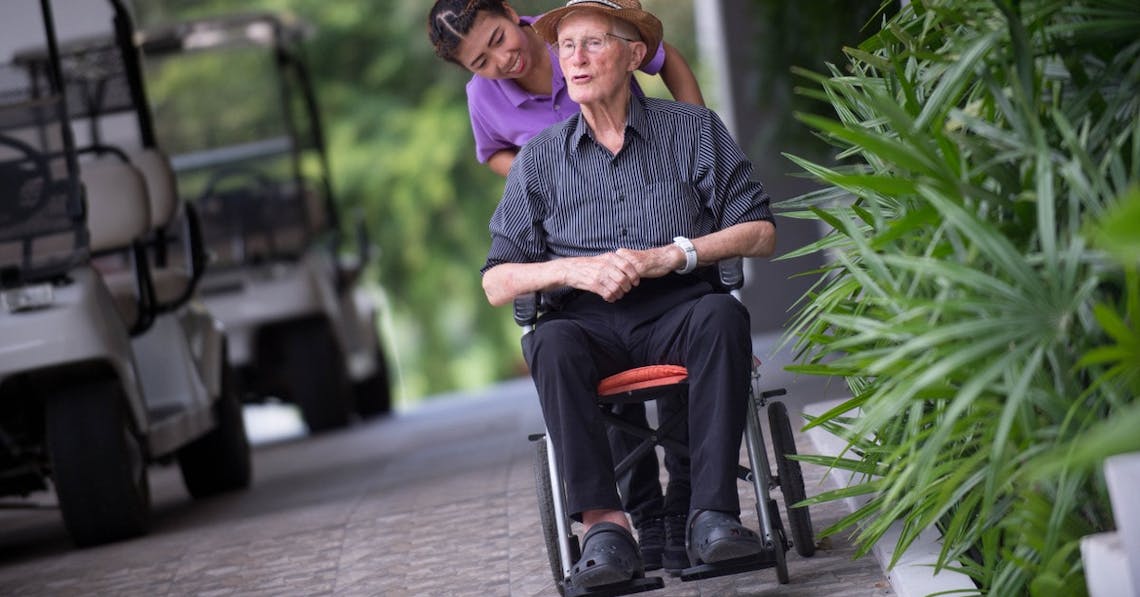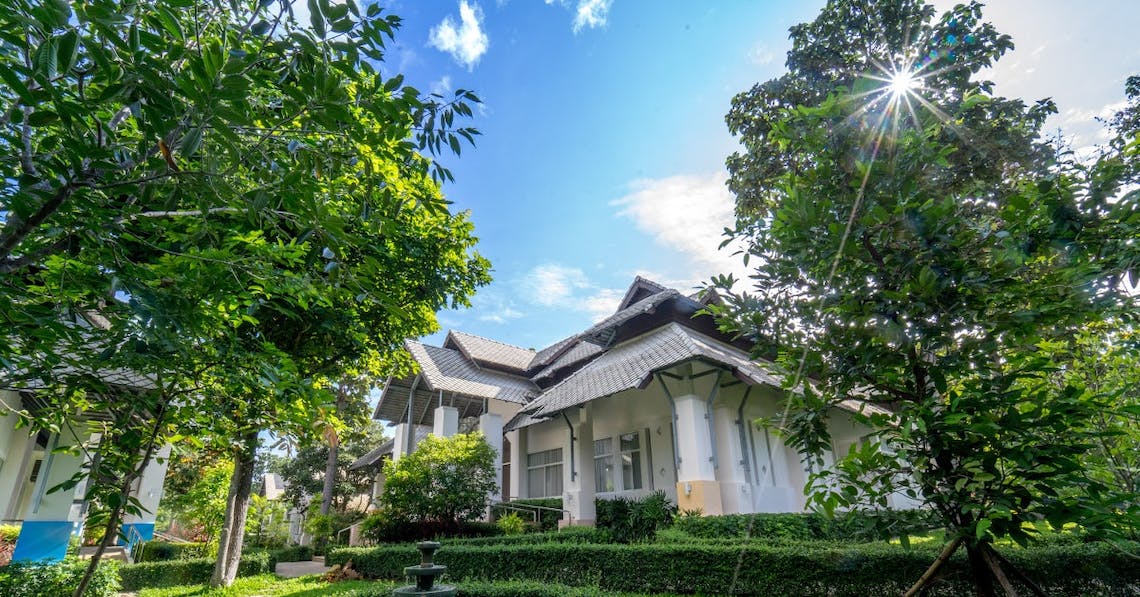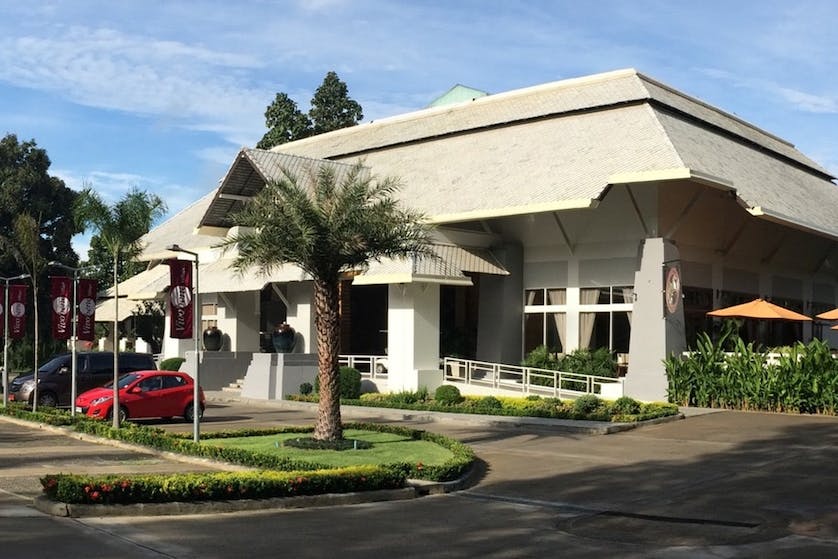Why Are Brits Sending Their Loved Ones To Chiang Mai For Expert Dementia Care?
8 care homes in Chiang Mai are currently providing dementia care to patients from the United Kingdom. Despite Chiang Mai being more than 6,500 miles away from the UK, the families of dementia patients are choosing to fly their loved ones to the city to ensure they get the quality care that they need. But why is Chiang Mai the city of choice for these families and do they really have no other option than to move their nearest and dearest halfway around the world?
Providing quality care
Most families will look after a relative with dementia for as long as they can in their own home in the UK before considering a move to Chiang Mai. During this period, various medical aids will be required such as support bars, bath seats, and non-spill cups. A constant supply of medication is also likely to be required, including basics like bandaids and ointments, as well as drugs used to aid the daily lives of dementia patients. Families may choose to sign up for a subscription box to get these supplies as it alleviates the need to leave the home to get them. This can also be beneficial when encouraging a dementia patient to retain their independence for as long as possible.
Ultimately, as dementia progresses, the time will come for the family of a dementia patient to move them into a care facility. But many families have found that a combination of factors in the UK, including the cost and level of care given, are far from satisfactory. One unnamed woman whose husband is currently in Chiang Mai’s Vivobene after numerous failings from British care homes advised “The home we were recommended [in England] for my husband cost £900 a week and one afternoon, my son-in-law went to take [my husband] out and he wasn’t dressed or shaved. He was just looking out of the window. We bought him home and a few months later, I put him into another care home and the same thing happened again.”
Affordable dementia care
The cost of moving a dementia patient into a local authority-owned care home in the UK is the equivalent of 28,065.39 Thai baht per week. While opting for a private care home costs approximately 40,093.41 baht per week. In contrast, a care home in Chiang Mai costs 30,070.06 baht per week, but there’s a big difference in the quality of care that the patient will receive for this price. In the UK, there is no strict rule on the staff-to-guest ratio, meaning patients may have to wait some time on a daily basis to receive the care they require. It’s a very different situation in Chiang Mai and the rest of Thailand as care homes here provide one-to-one care on a 24/7 basis. Plus, the facilities and amenities that these care homes offer are typically award-winning and designed to mimic four-star hotels. Several of the care homes are even British-run, meaning the patients and their families benefit from the familiarity of British traditions in a Thai-based care setting.
Committed carers
In the UK, there is an estimated shortage of 122,000 adult social care staff. The staff turnover rate for nurses is also high, with The Guardian reporting that’s it’s currently greater than 30%. All in all, this is anything but reassuring for the families of dementia patients as it’s unlikely that their loved one will receive consistent care. In Chiang Mai and Thailand, the staff turnover rate is expected to be just 15% by the end of 2020, and there’s a shortage of
approximately 40,000 nurses. These figures help to maintain consistency in the quality of care that a dementia patient receives. In most care homes in Thailand, for example, just 3 or 4 nurses provide care to one patient, which is crucial for building a good rapport with the patient and their relatives.
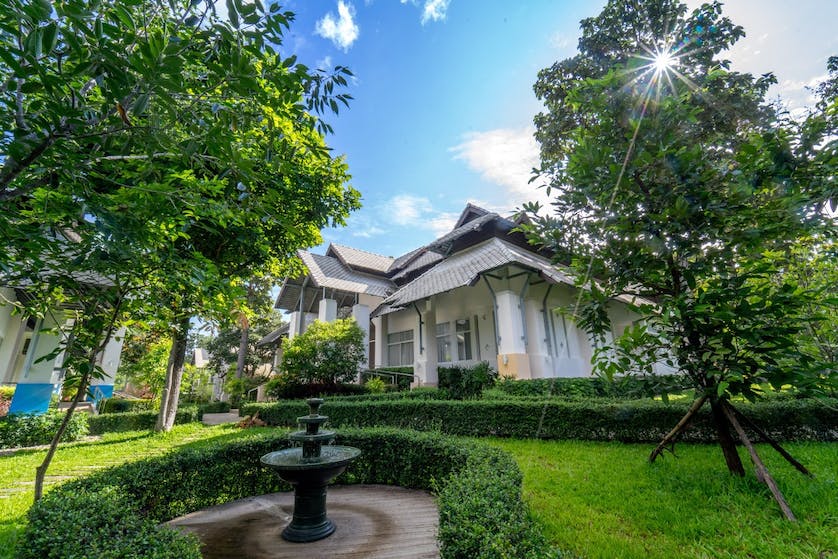
Family culture
Sadly, abuse of dementia patients is something that commonly occurs in British care facilities, and it’s often the patient’s carer that is the perpetrator. As a result, there is significant distrust in the UK care system, with 64% of people saying that care homes aren’t doing enough to prevent abuse. Thankfully, you’ll rarely hear of carers in Thailand abusing the elderly patients that they care for. This is because there is a strong family culture in Thailand which encourages honouring and respecting them at all times, regardless of their health or any other circumstance. Many Thai carers even say that they wouldn’t ever consider putting one of their own family members into a care home as their culture promotes younger generations providing care in the older person’s own home.
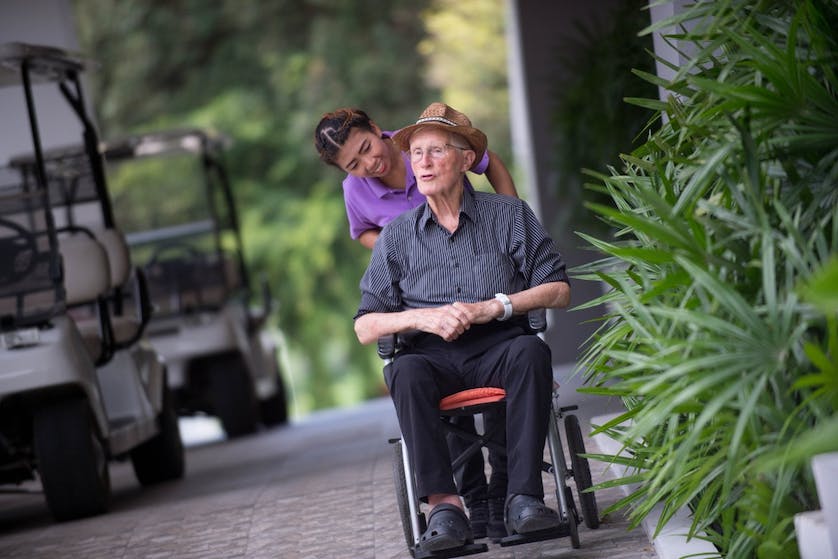
Better weather
It’s not just the better quality, more affordable, and consistent care that’s driving British families to transport family members with dementia all the way to Chiang Mai for care. The glorious weather that Chiang Mai and the rest of Thailand is blessed with throughout the year is also a key factor. Research shows that the cognitive abilities of dementia patients are typically worse in winter and early spring. The cold weather, in particular, is known to heighten dementia symptoms in many patients. With an average year-round temperature of 25.6 °C and January, the coldest month of the year, averaging a low of just 20.8 °C, Chiang Mai is the ideal location to help regulate the symptoms that dementia patients have.
An increasing number of British families are choosing Chiang Mai care homes to provide care to their relatives with dementia. While this might seem like a strange choice, there are plenty of benefits in hopping on a plane and committing to long-term care here over the UK.
Thank you for pictures from Vivo bene Village
